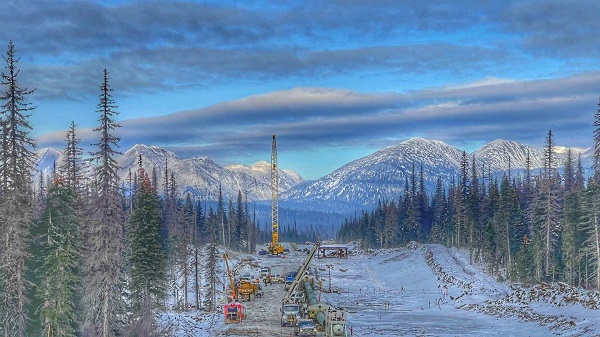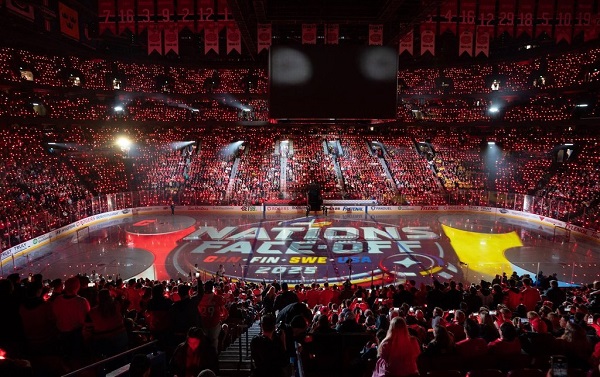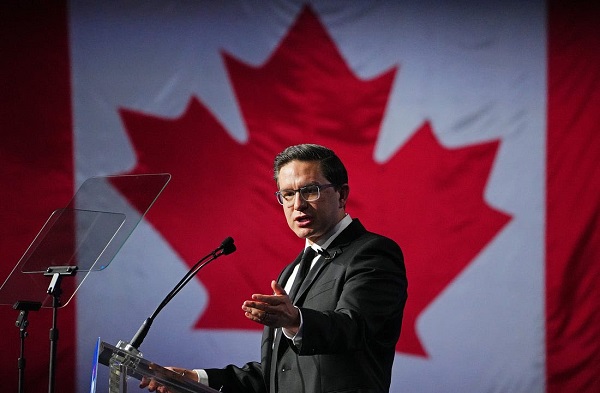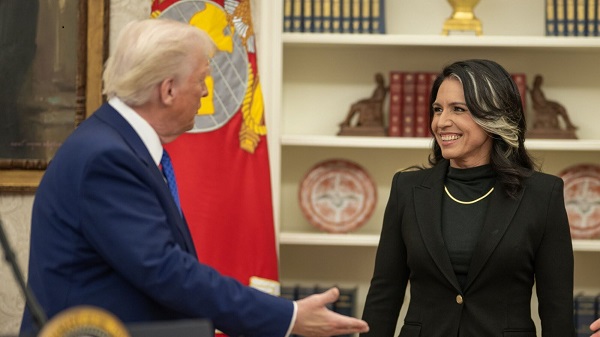Uncategorized
White House shifts shutdown strategy, tries to bypass Pelosi

WASHINGTON — Shifting strategy, the White House invited rank-and-file House Democrats to lunch Tuesday with President Donald Trump, bypassing Speaker Nancy Pelosi and her leadership team in an effort to get centrist and freshman lawmakers on board with funding Trump’s long-promised U.S.-Mexico border wall.
Pelosi approved of lawmakers attending the meeting, telling her team that the group can see what she and others have been dealing with in trying to negotiate with Trump to end the partial government shutdown, now in its 25th day with no resolution in sight.
Pelosi predicted that after meeting with Trump the lawmakers will want to make a “citizen’s arrest,” according to the aide, who wasn’t authorized to publicly discuss the meeting and spoke on condition of anonymity.
Lawmakers invited to the White House include centrist Democrats from districts where Trump is popular, including freshmen.
Rep. Jim Cooper, D-Tenn., said he attended a meeting of fellow centrist Democrats on Monday night and that a handful of members, most of whom represent districts Trump carried in 2016, were invited.
The White House has not released a guest list.
Rep. Jim Himes of Connecticut, another centrist Democrat, said the White House is “grasping at straws.”
“The majority of Americans understand exactly what is happening here,” he said. “The president could open the government tomorrow and he refuses to. We’re very conscious of the fact that this is a bully and when you allow him to succeed by holding the government hostage you can expect to see that play run again.”
Senate Majority Leader Mitch McConnell said on the Senate floor that it’s up to Democrats to get the country off the “political carousel” of the shutdown fight. The Kentucky Republican said Democrats have turned Trump’s wall into “something evil” and have engaged in “acrobatic contortions” to avoid dealing with the security and humanitarian crisis at the southern border.
With the government shutdown now in its fourth week, negations between the White House and Congress are at a standstill. Trump has demanded $5.7 billion for the border wall; Democrats are refusing but are offering money for fencing and other border security measures.
On Monday, Trump rejected a short-term legislative fix and dug in for more combat, declaring he would “never ever back down.” The president also edged further away from the idea of trying to declare a national emergency to circumvent Congress.
“I’m not looking to call a national emergency,” Trump said Monday. “This is so simple we shouldn’t have to.”
Trump’s rejection of the short-term option proposed by Republican Sen. Lindsey Graham removed one path forward, and little else was in sight. Congressional Republicans were watching Trump for a signal for how to move next, and Democrats have not budged from their refusal to fund the wall and their demand that he reopen government before border talks resume.
In addition to the White House outreach to centrist House Democrats, about a dozen senators from both parties met Monday to discuss ways out of the shutdown gridlock. Participants included Graham and Sens. Susan Collins, R-Maine, Joe Manchin, D-W.Va., and Tim Kaine, D-Va.
Sen. John Cornyn, R-Texas, McConnell was aware of the group’s effort but added, “I wouldn’t go so far as to say he’s blessed it.” The odds of the group producing a solution without Trump’s approval seemed slim.
Meanwhile, the effects of the 25-day partial government closure were intensifying around the country.
Some 800,000 federal workers missed paychecks Friday, deepening anxieties about mortgage payments and unpaid bills, and about half of them were off the job, cutting off some services.
Trump spent the weekend in the White House reaching out to aides and lawmakers and tweeting aggressively about Democratic foes as he tried to make the case that the wall was needed on both security and humanitarian grounds. He stressed that argument repeatedly during a speech at a farming convention in New Orleans on Monday, insisting there was “no substitute” for a wall or a barrier along the southern border.
Trump has continued to insist he has the power to sign an emergency declaration to deal with what he says is a crisis of drug smuggling and trafficking of women and children at the border. But he now appears to be in no rush to make such a declaration.
Instead, he is focused on pushing Democrats to return to the negotiating table — though he walked out of the most recent talks last week.
White House officials cautioned that an emergency order remains on the table. Many inside and outside the White House hold that it may be the best option to end the budget standoff, reopening the government while allowing Trump to tell his base supporters he didn’t cave on the wall.
However, some GOP lawmakers — as well as White House aides — have
___
For AP’s complete coverage of the U.S. government shutdown: https://apnews.com/GovernmentShutdown
___
Associated Press writers Darlene Superville, Matthew Daly, Jonathan Lemire, Alan Fram and Lisa Mascaro contributed to this report.
Catherine Lucey And Jill Colvin, The Associated Press
Uncategorized
Alleged Human Traffickers arrested in Red Deer, Montreal, and Edmonton

Human trafficking suspect arrested in Red Deer, July 2024
From Alert, the Alberta Law Enforcement Response Team
Three human traffickers arrested in Project Endgame
Three men have been arrested and stand accused of running a human trafficking operation that stretched across Canada; operating throughout Alberta, British Columbia, Saskatchewan, and Quebec.
Project Endgame was a year-long investigation led by ALERT’s Human Trafficking unit, and also relied on the assistance of the Edmonton Police Service, RCMP, and the Quebec joint forces Anti-Pimping team known as EILP.
Arrests and search warrants had taken place in Edmonton, Montreal, and Red Deer. A total of 23 charges related to human trafficking offences have been laid against Clyde Elien-Abbot, 31, Kevin Dorcelus-Cetoute, 31, and Jean Rodnil Dubois, 31. Elien-Abbot was arrested on January 31, 2025 in Edmonton, while the other two accused were arrested on July 23, 2024.
|
|
|
|
Uncategorized
All 6 people trying to replace Trudeau agree with him on almost everything
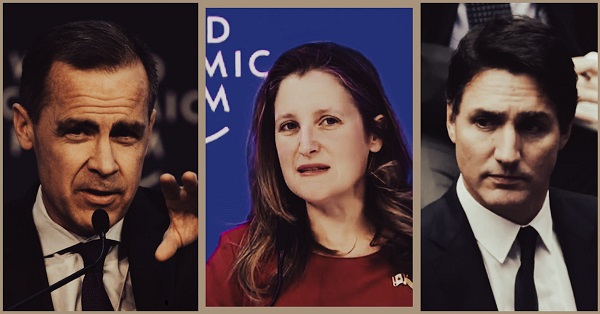
From LifeSiteNews
The Liberals are choosing a new face, but all six contenders seem likely to continue forcing Canadians down the same path as the PM they’re out to replace
With the Liberal leadership election just over a month away on March 9, Canadians are examining the six final contenders and questioning if they will bring change to the Liberal Party or carry on Prime Minister Justin Trudeau’s radical legacy.
The six contenders for Liberal leader and consequently, the next prime minister, are: Mark Carney, Chrystia Freeland, Karina Gould, Jaime Battiste, Frank Baylis and Ruby Dhalla.
While all the above candidates are promising to turn the Liberal Party around, their policies, both past and proposed, suggest little difference from the radical, anti-life and globalist agenda embraced by the Trudeau government.
Former Governor of the Bank of England Mark Carney
Carney appears to be the frontrunner for Liberal Party leader, with many mainstream outlets tacitly promoting him as a solution for Canadians, and numerous MPs having endorsed his campaign.
However, as LifeSiteNews has previously reported, Carney’s history suggests he would be an even more radical version of Trudeau.
While his impressive work experience certainly raises him in the estimation of Canadians, especially compared with Trudeau’s pre-political career as a drama teacher, the former Governor of the Bank of England, like Trudeau, openly supports abortion, the LGBT agenda and many of the tax and fiscal policies of the Trudeau government, such as the carbon tax.
Carney’s endorsement of energy regulations go even further than Trudeau’s, with the candidate having previously blasted the prime minister for exempting home heating oil from the carbon tax.
Carney has also been a longtime supporter of the globalist World Economic Forum, attending their infamous annual conference in Davos, Switzerland as recently as January 2023.
Carney routinely uses social media to advocate for achieving so-called “net-zero” energy goals, and even had his team bar multiple independent journalists from attending the press conference he held to announce his bid for Liberal leader.
Former Deputy Prime Minister Chrystia Freeland
Freeland’s bid for Liberal leader came as a surprise to many as it closely followed her resignation from Trudeau’s cabinet.
Freeland is perhaps best known internationally for her heavy-handed response to anti-mandate Freedom Convoy protesters, which saw the then-finance minister direct financial institutions to freeze the bank accounts of Canadians who participated in or donated to the protest.
Freeland, like Carney, also has extensive ties to the WEF, with her receiving a personal commendation from former WEF leader Klaus Schwab.
Interestingly, at the same time as Freeland announced her Liberal bid, the WEF’s profile on Freeland was taken down from their website. Additionally, the majority of Freeland’s Instagram posts have been removed from public view.
Many have speculated online as to the reason why these actions were taken, with some suggesting that Freeland desires to distance herself from the massively criticized group.
Critics often pointed to Freeland’s association with the group during her tenure as finance minister and deputy prime minister, as she was known for pushing policies endorsed by the globalist organization, such as the carbon tax and online censorship.
Former House Leader MP Karina Gould
Gould, an avid abortion activist, is perhaps best known for telling American women that they can have their abortions in Canada following the Supreme Court of the United States’ overturning of Roe v. Wade in 2022.
Gould is also known for continually advocating in favor of state-funded media, which critics have warned causes supposedly unbiased news outlets into de facto propaganda arms for the state.
In one example from September, Gould directed mainstream media reporters to “scrutinize” Conservative Party leader Pierre Poilievre, who has repeatedly accused government-funded media as being an arm of the Liberals.
Gould also claimed that Poilievre’s promise to defund outlets like the Canadian Broadcasting Corporation would deny Canadians access to important information, ignoring the fact that the Liberals’ own legislation, which she voted for, blocked all access to news content on Facebook and Instagram.
MP Jaime Battiste
Voting records show that in 2021 Battiste opposed a bill aiming to protect unborn children from sex-selective abortions. Later that same month, he voted to pass Bill C-6, which allows parents to be jailed for up to five years for refusing to deny the biological sex of their gender-confused children.
Furthermore, Battiste struck down a motion to condemn incidents of arson and vandalism of churches across Canada. In October 2023, a Conservative MP put forward a motion to denounce the arson and vandalism of 83 Canadian churches, especially those within Indigenous communities.
However, Battiste moved to adjourn the meeting rather than discuss the motion, saying, “I would like to call to adjourn debate on this if that’s what we can do, so we can hear the rest of the study, but if we have to, then I would rather discuss it in camera because it does have a way of triggering a lot of people who went through residential schools and the things they are going through.”
The Liberal government is known to be extremely lenient in their rhetoric when it comes to attacks on Catholic churches, with Trudeau even saying such behavior was “understandable” even if it is “unacceptable and wrong.”
Former MP Frank Baylis
Baylis served as a Liberal MP in 2015 but chose not to seek re-election in 2019. Now, he has thrown his hat in the ring as Liberal leader.
During his time as MP, Baylis was a staunch supporter of abortion. In 2016, he voted against a Conservative bill to provide protection to unborn children and pregnant mothers from violence.
Interestingly, Baylis is the former owner of the Baylis Medical Company of Montréal which was awarded a $282.5 million government contract for now “useless” ventilators during the COVID “pandemic.”
Former MP Ruby Dhalla
Dhalla served in the House of Commons from 2004 to 2011. Interestingly, Dhalla, born to Indian immigrant parents, has promised to deport illegal immigrants and “clamp down on human traffickers.” Dhalla’s stance sets her apart from the other Liberal candidates on the issue.
While Dhalla styles herself as an “outsider,” during her time as an MP, she worked to further abortion in Canada, voting against legislation to protect babies from violence in the womb.
In conclusion
It seems that no matter who is selected as the next leader of the Liberals, the party will remain one which prides itself on being pro-abortion, pro-LGBT, pro-euthanasia and globalist in vision.
While Trudeau may be taking the blame for the current state of the Liberal Party, with these 6 candidates it would appear that the party remains intent on pushing the same policies.
Although it is true that Trudeau’s political blunders, such as his repeated historical use of black-face or his inviting a Nazi-aligned World War II veteran into Parliament, have contributed to his popularity decline, it seems the policies behind the blunders are not his, but the Liberal Party’s itself.
-

 Addictions2 days ago
Addictions2 days agoBC overhauls safer supply program in response to widespread pharmacy scam
-

 International2 days ago
International2 days agoJihadis behead 70 Christians in DR Congo church
-
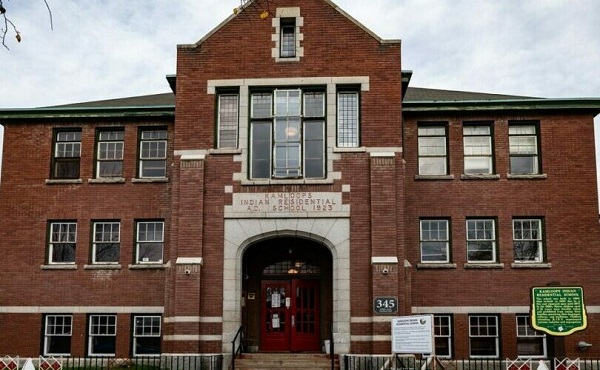
 Indigenous1 day ago
Indigenous1 day agoTrudeau gov’t to halt funds for ‘unmarked graves’ search after millions spent, no bodies found
-

 Business1 day ago
Business1 day agoWorst kept secret—red tape strangling Canada’s economy
-
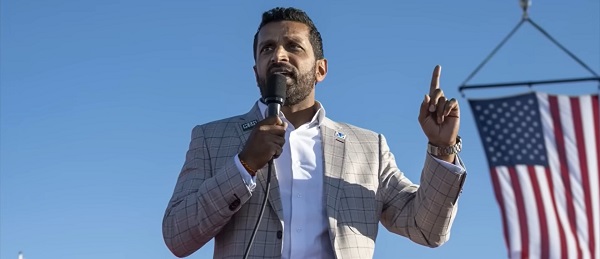
 Daily Caller1 day ago
Daily Caller1 day agoKash Patel First Statement As FBI Director, Tells Media ‘Bring It On’
-
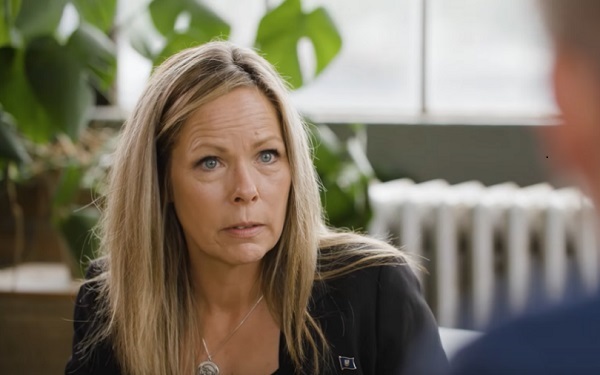
 COVID-191 day ago
COVID-191 day agoFreedom Convoy’s Tamara Lich shares heartfelt letter from children: ‘God will be by your side’
-

 Business1 day ago
Business1 day agoApple removes security feature in UK after gov’t demands access to user data worldwide
-

 Business1 day ago
Business1 day agoPepsiCo joins growing list of companies tweaking DEI policies






